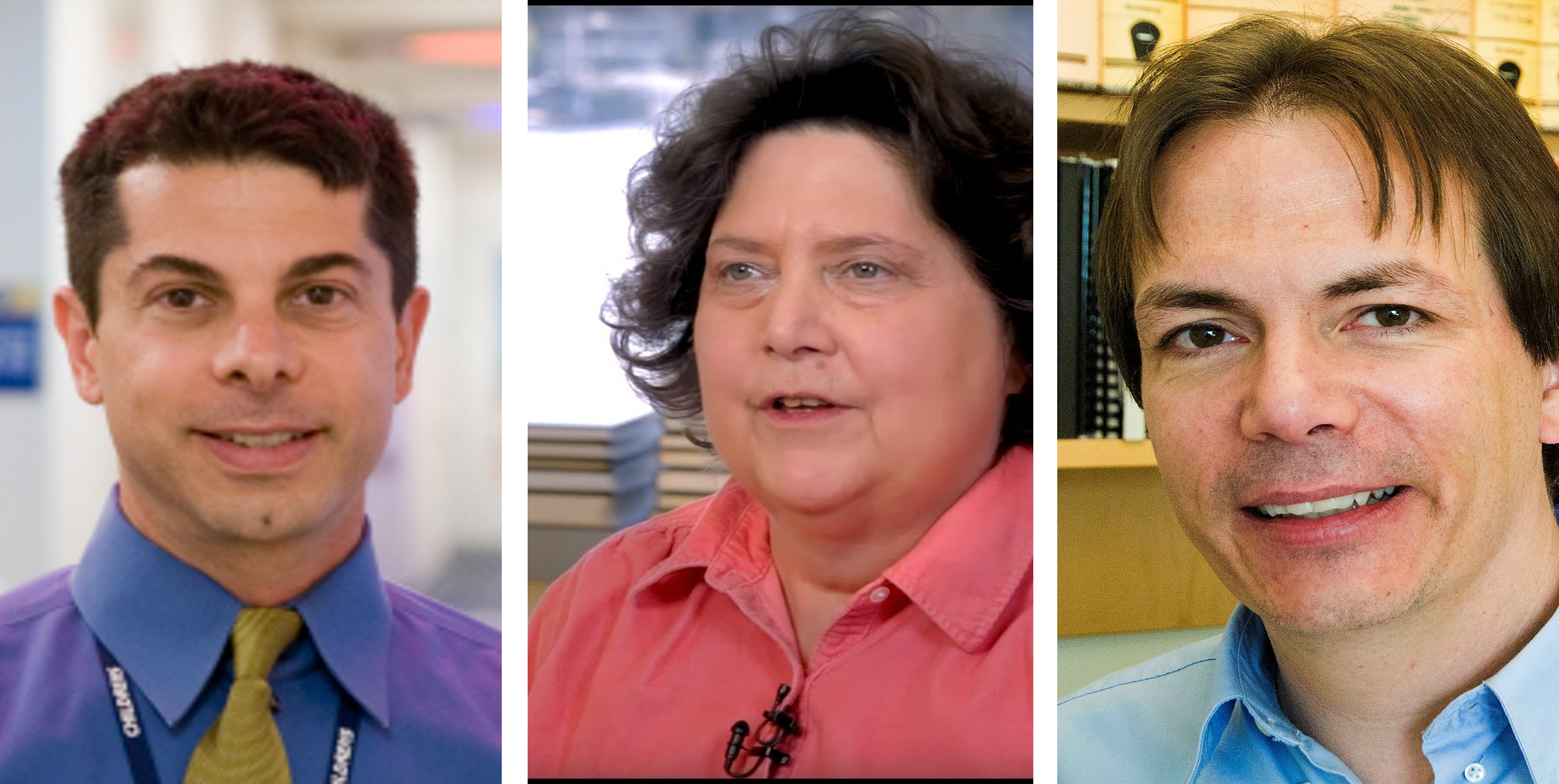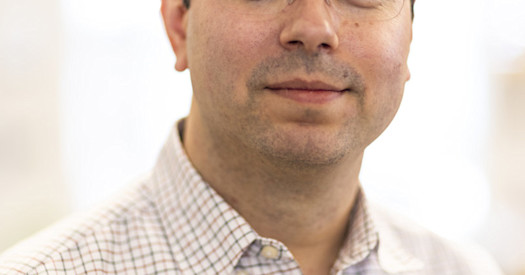 Pictured: Dr. Mike Bamshad, Dr. Debbie Nickerson, Dr. Evan Eichler
Pictured: Dr. Mike Bamshad, Dr. Debbie Nickerson, Dr. Evan Eichler
The $2.7 million federal grant to the UW Medicine Departments of Genome Sciences and Pediatrics, announced on July 15, will enable BBI researchers to explore genetic basis of Mendelian conditions, including sickle cell anemia, hemophilia, and muscular dystrophy. Moreover, the work will be part of new Mendelian Genomics Research Consortium, a coalition of five clinical sites nationwide, along with a data coordination center at the UW School of Public Health.
“Millions of people are born with rare diseases where the causes are not known,” said BBI’s Dr. Debbie Nickerson, a professor of genome sciences and one of three principal investigators in the project. “Currently, we can only identify about 50 percent of the causes of rare disorders. The idea is to look for the missing causes and genome changes that lead to rare conditions. This has a lot to do with our ability to interpret the impact of rare variation in the genome. It’s from rare, impactful differences in our genomes that provide insights into the parts of the genome that are important for structure and function in humans.”
Nickerson and the two other principal investigators, Drs. Evan Eichler and Michael J. Bamshad, are ready for the challenge to identify those missing causes and genome changes. Together, they have more than 75 years of combined knowledge and expertise in genetics, genome sequencing, and research on single-cell diseases. Eichler is a professor of genome sciences at UW Medicine; Bamshad, a professor of pediatrics at UW Medicine, also conducts research on genetic disorders at Seattle Children’s Hospital.
“This project funded by the National Human Genome Research Institute, part of the National Institutes of Health, elevates research on Mendelian conditions to a new level of excellence,” said Bamshad. “We will be working in close collaboration with four other research institutions and clinicians across the country to share samples, data, and strategies to maximize discovery of new genes for Mendelian conditions.”
Those four other organizations are:
· The Broad Institute in Cambridge, Massachusetts
· Stanford University School of Medicine in Stanford, California
· Baylor College of Medicine in Houston, Texas
· Children’s National Hospital in Washington, DC
The five-year project totals $80 million, pending availability of funds. The portion earmarked for the UW is $13.5 million.
Eichler, Bamshad, and Nickerson see their overarching goal as maximizing novel gene discovery for Mendelian conditions (MCs). They will explore novel approaches to inform variant interpretation and functional validation for the human genetics community at-large, and disseminate results, data, and tools. Moreover, they and their research teams will seek to translate their discoveries for clinical settings, as well as to share those discoveries across the new consortium and with other researchers.
They intend to capitalize on immediate access to more than 26,000 sequence-ready samples from approximately 300 MCs, 1,500 samples suspected of harboring causal noncoding variants for MCs, and an aggressive sample solicitation plan in partnership with industry, academic centers, and other NIH programs. Their aims are three-fold:
· Maximize novel gene discovery for MCs by solicitation, sequencing, and analysis of families with unexplained MCs
· Develop new strategies for gene discovery for unsolved MCs caused by variants that are difficult to detect or of unknown functional effects
· Assume a leadership role in sharing sequencing and rich phenotypic metadata, methods, and knowledge, thereby empowering investigators and accelerating the pace of gene discovery.
“We are especially excited to apply new long-read sequencing approaches to solve Mendelian cases of disease where traditional methods have failed to identify the underlying genetic cause,” said Eichler. “Technologies are advancing to the point that all forms of genetic variation will soon be discovered and helping families who have not yet received a genetic diagnosis with these new technologies remains a high priority.”
More than 400 million people worldwide have been diagnosed with one of about 7,000 Mendelian conditions. In announcing the funding, the National Human Genome Research Institute (NHGRI) stated that researchers recently “have been identifying about 300 Mendelian disease genes each year” through whole-exome sequencing.
“This method sequences all the regions of the genome responsible for encoding proteins,” the NHGRI statement noted. “However, whole-exome sequencing has not been successful in identifying the genes responsible for many Mendelian diseases, requiring new ways of approaching the problem. The consortium’s primary goal is to explore and find innovative methods to increase the rate at which the genes responsible for all Mendelian diseases can be identified.”
This grant extends the strong relationship that has long existed between UW and NHGRI. “We were a part of the highly successful Centers for Mendelian Genomics that just ended, and now we will be joining a new team to help form one of the Mendelian Genomic Research Centers,” Nickerson said.
In 2011, the NHGRI and the National Heart, Lung, and Blood Institute established the Centers for Mendelian Genomics to facilitate large-scale discovery of genes for MCs. In partnership with more than 2,300 investigators from 656 institutions in 55 countries, the UW assessed more than 15,000 samples from in excess of 5,000 families and produced 9,822 exome and 1,025 whole genome sequences.
This extensive collaborative effort resulted in an unparalleled pace of about 2.2 discoveries a week, totaling to 915 novel discoveries, including 489 novel genes for MCs.


